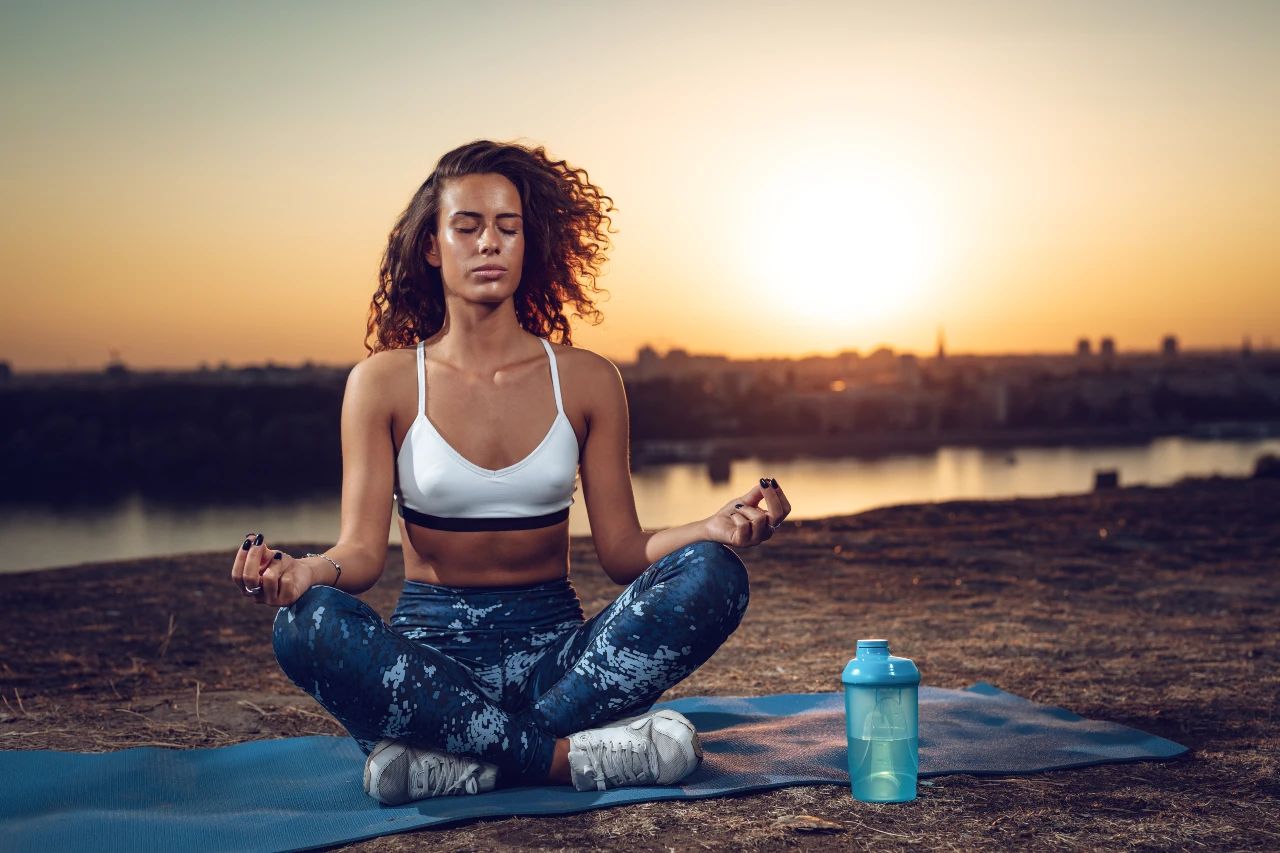Meditation is a powerful tool that can help you manage stress and anxiety. Whether you’re new to meditation or a seasoned practitioner, this guide is designed to help you understand the benefits of meditation for anxiety and provide you with practical strategies to incorporate this practice into your daily life.
Understanding Anxiety
Anxiety is a normal part of the human experience. It can manifest in different ways for different people but can affect both the mind and body in profound ways. The mental effects of anxiety can include excessive worry, restlessness, lack of concentration, irritability, and feelings of fear or dread.
Physical symptoms can include a racing heart, muscle tension, shaking, dizziness, difficulty breathing, and fatigue. While these symptoms can sometimes feel overwhelming, it’s important to remember that they are not imaginary – they are very real. However, anxiety doesn’t have to rule your life.
The Role of Meditation in Managing Anxiety
Meditation is a method of training the mind, similar to the way fitness is an approach to training the body. It can be used both proactively and reactively to manage anxiety. By developing a regular meditation practice, you can cultivate a sense of calm and clarity, enabling you to respond effectively to anxious thoughts and feelings.
How Does Meditation Reduce Anxiety?
Meditation works by helping you step away from the hustle and bustle of anxious thoughts and into a space of calm and clarity. You can think of it as stepping out of a noisy party onto a quiet balcony – the noise is still there, but it’s been dialed down, allowing you to hear yourself think and relax.
Regular meditation also helps activate the brain’s “relaxation response,” which counters the stress response and helps bring the body back to equilibrium. It increases ‘feel-good’ chemicals like serotonin and endorphins, enhancing your emotional resilience and helping you bounce back from stressful situations more easily.
Meditation Techniques for Anxiety
There are several meditation techniques that can help ease anxiety. The key is to find the one that resonates best with you. Here are some of the most effective techniques for managing anxiety:
- Mindfulness Meditation: This technique involves focusing on the present moment with a non-judgmental attitude. It encourages you to observe your anxious thoughts and feelings without getting caught up in them.
- Loving-Kindness Meditation (LKM): LKM fosters a sense of compassion and love towards yourself and others. It can help reduce anxiety and feelings of isolation.
- Body Scan Meditation: This meditation asks you to mentally “scan” your body, focusing on different parts one at a time. It encourages you to tune into your physical sensations, anchoring your mind to the present moment.
- Guided Meditation: If sitting quietly with your thoughts feels daunting, guided meditations can be a great place to start. They involve a teacher or guide who leads you through a meditation practice.
- Breath Awareness Meditation: This involves tuning into your breath – the inhales, the exhales, the gentle rise and fall of your chest. The rhythm of your breath acts as an anchor, helping to settle anxious thoughts.
- Progressive Muscle Relaxation (PMR): PMR involves tensing and relaxing different muscle groups. It helps manage anxiety by increasing your awareness of physical sensations and shifting your attention away from mental activity.
Tips for Meditating When You’re Anxious
Starting a meditation practice when you’re feeling anxious can be challenging. Here are some tips to help you get started:
- Let Go of Expectations: Be patient with yourself and remember that meditation is a practice. Some days might feel like a struggle, but that’s okay.
- Prepare Yourself Beforehand: Spend a few minutes before each session preparing your mind and body. Find a quiet, comfortable place where you won’t be disturbed.
- Start With a Short Body Scan to Release Tension: Begin with a mini body scan. Tune into your body and consciously release tension from each part. This practice helps to ground you in the present moment, allowing you to drop deeper into meditation.
- Avoid Judging Any Intrusive Thoughts That Arise: Unwelcome thoughts can often pop up when meditating. That’s completely normal. Instead of feeling bad for having them, simply recognize their presence and gently steer your focus back to your breath.
- Start Small and Gradually Increase Meditation Time: Start with a few minutes daily, then gradually increase the duration as your comfort level grows. Remember, it’s not about the time you spend meditating but the consistency of your practice.
- Turn to Guided Meditations if You Feel Overwhelmed: Guided meditations can be super helpful, especially for beginners or when anxiety levels are high. They support you by steering your focus and making the process of meditating feel less daunting.
Common Questions About Meditation for Anxiety
Q: What meditation is good for anxiety? A: Mindfulness, body scan, and loving-kindness meditations are just a few techniques that are particularly effective for anxiety. The best method will vary from person to person, so consider trying different approaches to see which one resonates with you.
Q: How do you meditate in bed for anxiety? A: Try a body scan or breath awareness meditation while lying down in your bed. Guided sleep meditations are also a great way to ease anxiety before sleep.
Q: How can I calm my anxiety in 5 minutes? A: Try a short mindfulness practice, focusing on your breath or surroundings. Also, consider guided meditations specifically designed to alleviate anxiety quickly.
Conclusion
Navigating through anxiety can be a challenging journey. But by exploring meditation for anxiety, you’re taking a powerful step towards managing it and reclaiming your inner peace. Remember, it’s okay to ask for help if anxiety seriously affects your life. Meditation is a powerful tool, but it’s not a replacement for professional help if needed. Be patient with yourself and remember that each person’s journey with meditation is unique. With practice, you can cultivate a sense of calm and clarity, enabling you to better manage stress and anxiety in your life.


